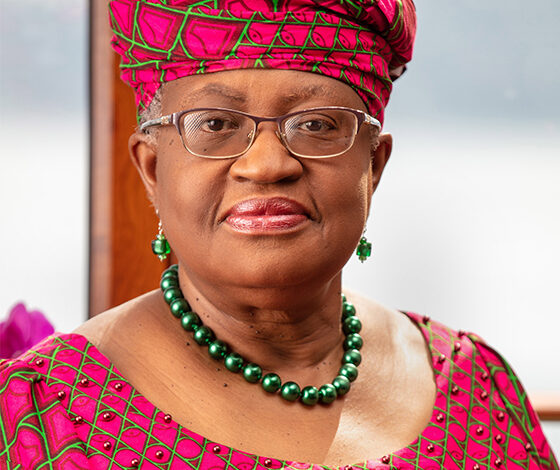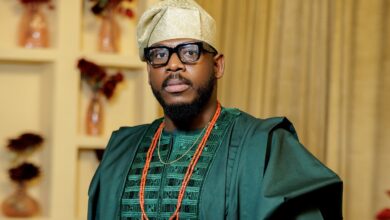Top 10 Most Influential Women in Nigeria

Nigeria, known for its rich cultural diversity and dynamic society, has been shaped significantly by the influence of remarkable women across various fields. These women have excelled in politics, business, advocacy, arts, and philanthropy, leaving a lasting impact on the nation and beyond. Here’s a look at the top 10 most influential women in Nigeria:
1. Ngozi Okonjo-Iweala
- Role: Economist, International Leader
- Dr. Ngozi Okonjo-Iweala is a globally respected economist and diplomat who made history as the first woman and first African Director-General of the World Trade Organization (WTO). Prior to her WTO role, she served as Nigeria’s Finance Minister and coordinated economic reforms that boosted Nigeria’s financial standing.
2. Amina J. Mohammed
- Role: Deputy Secretary-General of the United Nations
- Amina J. Mohammed, a Nigerian-British politician and diplomat, currently serves as the Deputy Secretary-General of the United Nations. She has been a staunch advocate for sustainable development, having previously served as Nigeria’s Minister of Environment and played a key role in shaping the Sustainable Development Goals (SDGs).
3. Folorunso Alakija
- Role: Business Magnate, Philanthropist
- Folorunso Alakija is one of Nigeria’s wealthiest women and a prominent businesswoman known for her ventures in fashion, oil, and real estate. She is the founder of Famfa Oil Limited and is actively involved in philanthropic initiatives focused on education and women’s empowerment.
4. Chimamanda Ngozi Adichie
- Role: Author, Feminist Icon
- Chimamanda Ngozi Adichie is an acclaimed Nigerian author whose works, including “Half of a Yellow Sun” and “Americanah,” have gained international acclaim. She is a prominent voice in contemporary literature and a passionate advocate for feminism and social justice.
5. Toyin Saraki
- Role: Founder, Wellbeing Foundation Africa
- Toyin Saraki is a healthcare advocate and founder of the Wellbeing Foundation Africa, which focuses on maternal and child health initiatives in Nigeria. She has been instrumental in promoting healthcare reforms and improving access to quality healthcare services for women and children.
6. Oby Ezekwesili
- Role: Activist, Former Minister of Education
- Oby Ezekwesili is a renowned activist and former Nigerian Minister of Education. She co-founded the Bring Back Our Girls movement, advocating for the release of abducted schoolgirls in Chibok. Her activism and leadership in education reform have made her a prominent figure in Nigerian civil society.
7. Mo Abudu
- Role: Media Mogul, Entrepreneur
- Mo Abudu is a media entrepreneur and CEO of EbonyLife Media, known for producing high-quality films, television series, and talk shows that celebrate African culture and entertainment. She has been instrumental in reshaping African media narratives and promoting diversity in media representation.
8. Aisha Yesufu
- Role: Activist, Co-convener of #BringBackOurGirls Movement
- Aisha Yesufu gained international recognition for her fearless activism and leadership in the #BringBackOurGirls movement, advocating for the release of abducted schoolgirls. She continues to be a vocal advocate for human rights, gender equality, and good governance in Nigeria.
9. Betty Irabor
- Role: Founder, Editor-in-Chief of Genevieve Magazine
- Betty Irabor is the founder and Editor-in-Chief of Genevieve Magazine, a leading lifestyle publication in Nigeria. She is a mental health advocate and has used her platform to raise awareness about mental health issues, inspiring many with her openness about her own struggles.
10. Funmi Iyanda
- Role: Media Personality, Producer
- Funmi Iyanda is a veteran broadcaster and media entrepreneur known for her groundbreaking television show “New Dawn with Funmi.” She has used her platform to address social issues, challenge stereotypes, and amplify marginalized voices, making her a respected figure in Nigerian media.
These influential women in Nigeria have not only broken barriers and achieved remarkable success in their respective fields but have also used their platforms to advocate for positive change, empower others, and inspire future generations. Their contributions to politics, business, media, activism, and literature have left an indelible mark on Nigeria’s cultural and social landscape, highlighting the invaluable role of women in shaping the nation’s progress and development.




